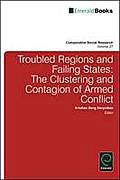For over three decades, Afghanistan has been a battleground in which many of the states of the wider neighbourhood have been involved. The importance of fostering a concerted effort for Afghan peace and stability is widely agreed upon, yet such a process remains difficult to bring about. Some analysts emphasize states and their security relationships, seeing Afghanistan as an ‘insulator’ caught between different regional state systems, each with a strong dynamic of its own. Other analysts emphasize various transnational networks and see Afghanistan as the ‘core’ of a larger conflict formation. This chapter takes as its starting point the former perspective, which has been codified by Barry Buzan and Ole Wæver (2003) as the regional security complex (RSC) approach. The chapter examines the security dynamics of each of the regions surrounding Afghanistan – South Asia, the Persian Gulf and South Asia – adopting a comparative and historical perspective, with an emphasis on the period since the late 1970s. It concludes that each of Afghanistan’s three surrounding regions is characterized by deep security concerns of its own. These concerns nonetheless inform the engagement of neighbouring countries in Afghanistan, which then comes to reflect conflicts and cleavages specific to the respective regions. One central implication is that a more promising strategy for Afghanistan might be to seek a unilateral non-offensive or neutral status, rather than full security integration with its neighbours. Although such a strategy would necessitate the creation of a forum for Afghanistan’s neighbours to foster understanding for the Afghan position, it represents a dramatic departure from mainstream policy proposals with their emphasis on an integrated regional approach.
Harpviken, Kristian Berg (2010) Caught in the Middle? Regional Perspectives on Afghanistan, Comparative Social Research 27: 277–305.







